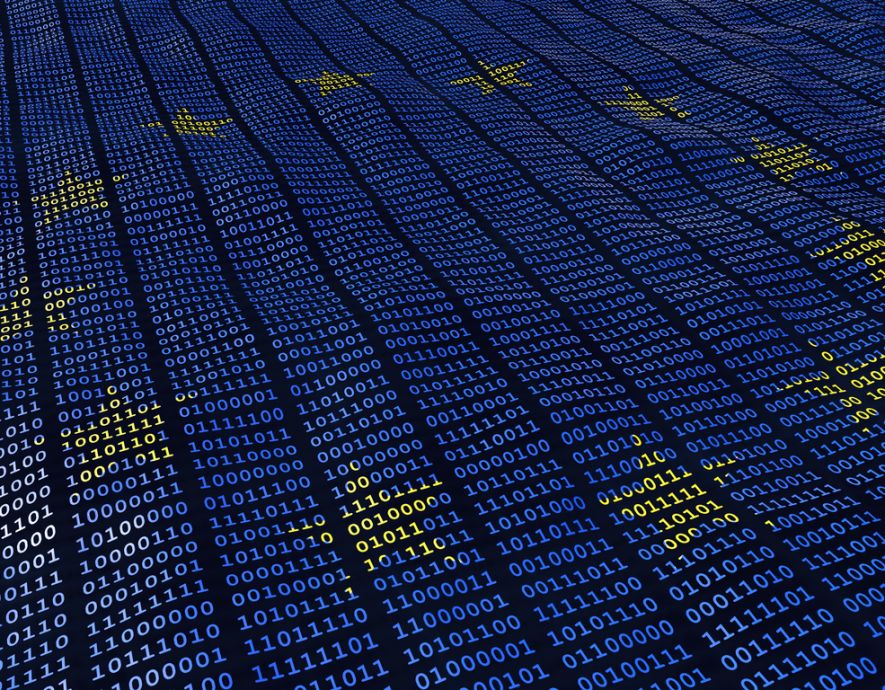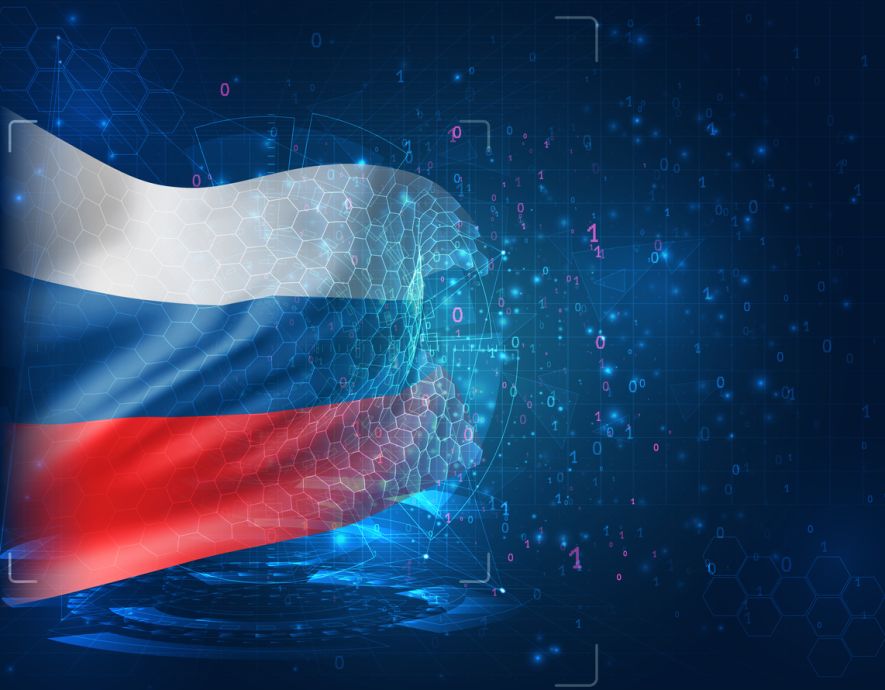
- Home
- Cyber stability
- From Ukraine to Pakistan, a journey to the heart of Internet geopolitics
From Ukraine to Pakistan, a journey to the heart of Internet geopolitics


The Internet is a constrained space, with its own bottlenecks, center and periphery, its land and sea powers. This is one of the conclusions of the colloquium on the geopolitics of Internet routes held on December 16, 2022. The GEODE research center gathered a rich sample of academics and professionals to talk about Ukraine, sovereignty, and the future of the Internet. An overview.
Relatively unaffected until now, Ukrainian infrastructures have been the target of Russian attacks since November: water, electricity, and the Internet are under fire from artillery, bombers, and missiles. Beyond the tragic consequences for the country and its population, this new phase of the war has highlighted the strategic role that the Internet, the control of its networks, and its contents have taken in the conflict.
This battlefield in its own right obeys the same geopolitical logic as its territorial counterpart. This is one of the aspects that was addressed during the colloquium on the geopolitics of Internet routes, organized by Geode on December 16. This multidisciplinary research and training center, attached to the University of Paris VIII, gathered its researchers around three round tables, as well as academics and professionals from all over Europe and the United States.
Among them, Alex Semenyaka, Chief Community Officer of RIPE NCC, described the situation of Internet networks in Ukraine since the beginning of the war. As a Ukrainian himself, he knows the situation well. He recalled the massive switch to cell phones to cope with the degradation of fixed lines at the beginning of the conflict, and the overall resilience of mobile telecommunications thanks to a very low concentration of operators. This situation has deteriorated with the intensification of Russian bombing: while the size of operators has limited their impact, data traffic is now threatened by the lack of electricity.
War-tested Ukrainian networks
A decentralized network to be compared with the centralization of the Russian infrastructures, stressed Louis Pétiniaud. One of Moscow’s first concerns when occupying a territory, explained this researcher in geopolitics of Internet infrastructures at GEODE, is to route traffic to its own networks in order to control and spy on the content.
A policy applied since 2014 in Crimea, agreed Ksenia Ermoshina, CNRS research fellow and associate researcher at the Citizen Lab of the University of Toronto (Canada). 20% of sites have been blocked in Crimea. Moscow has not hesitated to create local operators in order to circumvent the sanctions, which are now present in Ukrainian territories under its control.
These operators have therefore become links in RuNet, the Russian sovereign Internet. This is an attempt by Moscow not to depend on foreigners for this strategic sector, said Marie-Gabrielle Bertran, a researcher at GEODE specializing in software development in Russia. This project was launched in the wake of Edward Snowden’s revelations about mass surveillance by Anglo-Saxon countries. Although it has not achieved all its objectives (notably due to a lack of sufficient hosting capacity), it has nevertheless allowed Moscow to better control the data that enters, leaves, or transits through its networks. It has also encouraged the emergence of national software solutions.
Internet governance, a strategic issue
An independent network, but obviously still connected to the rest of the world. Some voices have been raised to demand that these interconnections be removed in retaliation for the war in Ukraine. A claim that raises the question of the evolution of Internet governance, said Joanna Kulesza, Council of Europe expert on human rights. She pleaded for the development of collegial Internet governance, on the model of ICANN since its emancipation from the U.S. government in 2016.
According to this Assistant Professor of International Law at the University of Lodz (Poland), in order to avoid any kind of pressure, all Internet regulatory bodies should systematically associate Tech and business actors, users, civil society, and governments and keep neutrality as a guiding principle.
Neutrality already faces several political and even physical obstacles. Not all countries are equal when it comes to accessing the Internet, said the speakers at the GEODE round table on « Internet sovereignty ». “There are countries like China and Russia that are trying to build a sovereign or at least autonomous Internet, » said Rachel Ann Hulvey, a doctoral student at the University of Pennsylvania’s Department of Political Science. A model that could spread to countries resistant to the international liberal order promoted by the designers of the network of networks. Even promoters of a free Internet, such as the United States, have sometimes erected digital walls, such as the banning of the Chinese applications TikTok and WeChat in 2020.
An Internet dead end
Countries on the periphery of the information highway, such as Kyrgyzstan, also have limited access, according to a field study by Kevin Limonier, deputy director of GEODE. Bordered in the South by the impassable Panshir mountains, dependent on Russia for its connection, this country suffers from very difficult conditions as soon as one moves away from its main urban centers.
Although it is not a dead end, Pakistan is also hampered in its development of the Internet by geopolitical conditions. Between two visits to the country, Nowmay Opalinski, an IFG Lab and GEODE PhD student, came to detail them. Pakistan is wedged between Iran to the west and India to the east, two countries with which Islamabad has few relations and whose infrastructure it does not use. In the north, a poor connection with China via the Himalayas opens up the country a little. The very mountainous north and west of the country are poorly served.
Pakistan depends on the sea to communicate with the world and its networks are highly concentrated along the Indus River, towards Karachi. The slightest flooding of the river that damages the cables has very serious consequences.
What is the future of the Internet, a strategic issue in terms of both infrastructure and content, an object of political and economic rivalry, and subject to both geography and governance choices? The participants in the last GEODE round table did not have a crystal ball but relied on their expertise to draw some conclusions.
The « black hole » of Cloud providers
Emile Aben, system architect/research coordinator at CCN RIPE, recalled that the Internet consists of 75,000 interconnected networks, serving 63% of the world’s population. While all of this works through decentralized protocols that ignore borders, the resources available to actors are not infinite. Therefore, he advocated for the strengthening of the resources of bodies such as RIPE NCC, which distribute them on a continental scale. At a time of energy shortages, this is an increasingly complex task.
Francesca Musiani, a researcher at the CNRS, believes that certain forms of sovereign Internet will develop. Even in open societies, they respond to a need for citizen protection… and state control. How could national or regional infrastructures (like Gaia-X, the European Cloud project) shape the Internet? The researcher, who is also deputy director of the Center for the Sociology of Innovation (CSI), has indeed argued that states might want to turn their infrastructures into tools of governance.
A movement that will in any case have its limits, pointed out Loqman Salamatian, PhD student at Columbia University. Indeed, with the development of proprietary infrastructures, Cloud providers largely escape this kind of control. Even for traffic tracking, these rapidly expanding networks are a « black hole, » according to the researcher. The Internet will be more than ever a global battlefield in which the traditional players – states and supranational organizations – are no longer necessarily in a position of strength.
the newsletter
the newsletter



